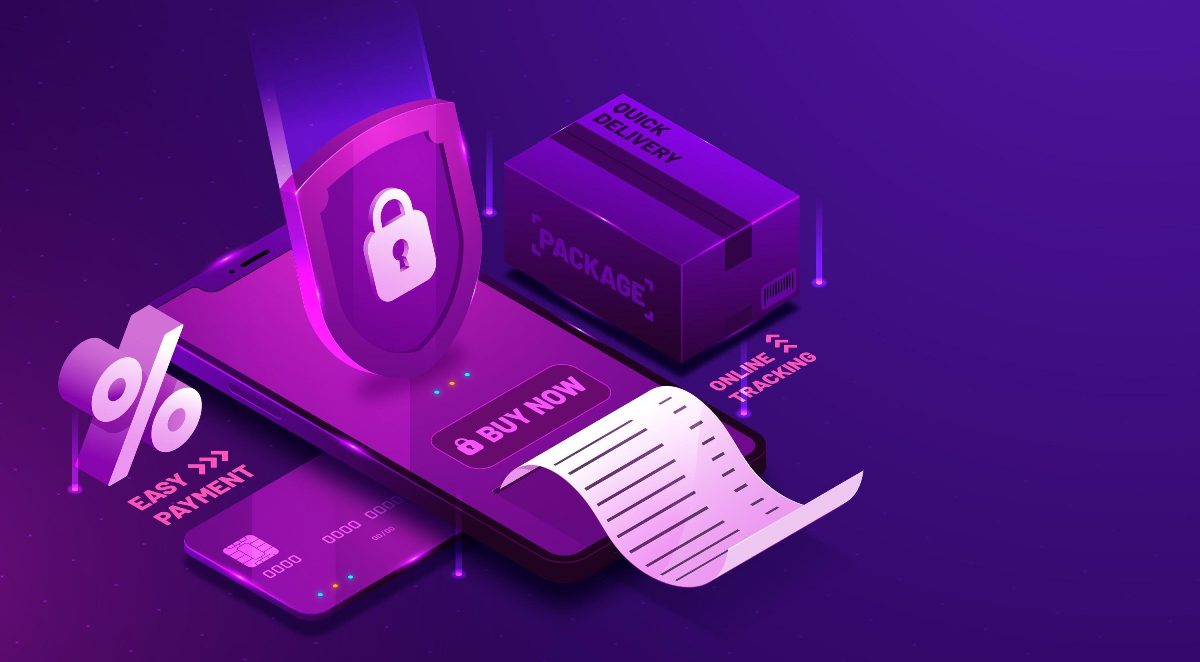Telecom
Sophos Uncovers Top 7 Ways Cyberscammers, Malware Operators Abuse Google Forms

Sophos, a global leader in next-generation cybersecurity, has published research, “Phishing and Malware Actors Abuse Google Forms for Credentials, Data Exfiltration,” describing how cyberattackers – from entry-level scammers to advanced adversaries – abuse Google Forms to implement a wide range of attacks, targeting both organizations and individuals.

Sean Gallagher, senior threat researcher at Sophos, “The extent to which cyberattackers abuse Google Forms came to light while we were researching how malware abuses encryption to conceal its activities and communications.
“Google Forms offer cyberattackers an attractive proposition: the forms are easy to implement and trusted by both organizations and consumers; the traffic to and from the service is secured with Transport Layer Security (TLS) encryption so it can’t be easily inspected by defenders; and the whole set up essentially provides a free attack infrastructure.
“Our analysis shows that while most abuse of Google Forms by cyberattackers remains firmly in the low-skill phishing and fraud spam space, there are increasing signs that adversaries are taking advantage of the platform for more sophisticated attacks.
“Sophos’ examples of this include attackers using Google Forms to exfiltrate data and for malware command-and-control.”
Below are the seven ways that Sophos researchers have identified cyberscammers and malware operators abusing Google Forms:
Phishing: Despite the fact that Google warns users on every page of a form not to enter password details, Sophos found several examples where attackers tried to convince potential victims to enter their credentials into a Google Form laid out to resemble a login page. These forms were often tied to malicious spam campaigns.
Malicious spam campaigns: One of the largest sources of Google Forms links in spam were “unsubscribe” links in scam-related marketing emails. Sophos has intercepted a number of spam-based phising campaigns that targeted Microsoft online accounts, including Office365. The spam claimed that recipients’ email accounts were about to be shut down if they were not immediately verified, and offered a link to a Google Form that asked the user to enter their Microsoft credentials. These Google Forms pages were decorated with Microsoft graphics but, still, clearly a Google Form.
Payment card data theft: Entry-level scammers use Google Forms’ ready-made design templates to attempt to steal payment data through faked “secure” e-commerce pages.
Potentially Unwanted Applications (PUAs), such as adware: The researchers discovered a number of PUAs targeting Windows users. These apps use Google Forms pages surreptitiously, with the web requests collected and submitted to forms automatically without any need for user interaction.
Fake user interfaces for malicious Android apps: Sophos found some malicious Android applications that made use of Google Forms to capture data without having to code a back-end website. Most of these were adware or PUAs. For instance, the researchers found “SnapTube,” a video app that generates revenue for the developer through web advertising fraud and which includes a Google Forms page for user feedback.
Data removal: The researchers uncovered a number of more sophisticated threats abusing Google Forms. This included malicious Windows applications that used web requests to Google Forms pages to ‘push’ stolen data from computers to a Google spreadheet via Google Forms.
Part of the wider malicious cyberattack infrastructure: Sophos telemetry has detected a number of PowerShell scripts interacting with Google Forms. We were able to prototype how PowerShell scripts could be used to scrape Windows profiling data from a computer and submit it to a Google Forms form automatically.
“Google frequently shuts down accounts associated with a mass abuse of applications, including Google Forms,” said Gallagher. “However, the kind of low-volume, targeted use of Forms by some malware could stay under the radar. Business defenders need to be alert to this threat and apply caution whenever they see links to Google Forms, or any other legitimate services trying to obtain credentials, and they should not inherently trust TLS traffic to ‘known good’ domains such as docs.google.com.”
Sophos products, including Intercept X for endpoints, defend against most malicious spam that carry forms-based phishing campaigns and detect the behaviors of system information collection discussed in the new research.
Sophos also advises consumers to install a security solution, such as Sophos Home, on the devices that they and their families use for online communications and gaming to protect everyone from malware and cyberthreats.
Telecom
Mart Networks Rolls Out Tailored Cybersecurity Solution for Fintechs

Mart Networks, a leading cybersecurity distributor across Africa and the Middle East, has unveiled a specialized cybersecurity package tailored for fintech firms.

The solution, powered by Invinsense, Infopercept’s unified cybersecurity platform, aims to address the growing security needs of fintechs operating in highly regulated environments.
According to Moiz Maloo, Managing Director at Mart Networks, fintech companies face unique security challenges due to stringent regulatory requirements and increasing threats. “Most fintechs don’t have the luxury of multiple internal security teams or system integrators. With this focused offering, we’re providing an all-in-one platform with managed services built specifically for the fintech environment,” he said.
The offering integrates four key components: Invinsense XDR and Managed Detection & Response for real-time monitoring, Exposure Management for vulnerability detection, Security Compliance Management to support fintechs in meeting regulatory standards, and Cybersecurity Awareness Programs to empower teams against cyber threats.
Furthermore, the package includes deep application visibility, ensuring fintech-specific applications remain secure through Invinsense SIEM’s custom log ingestion capabilities. To reinforce protection, Infopercept’s engineering team will provide code-level fixes, patches, and infrastructure security enhancements.
With the rise of cloud-based fintech operations, the solution also incorporates full-stack cloud security, including API security, Cloud Infrastructure Entitlement Management (CIEM), and Application Security Posture Management (ASPM).
Mart Networks’ move underscores the growing importance of cybersecurity in Africa’s fintech sector, as financial services become increasingly digital and susceptible to evolving cyber threats.
Telecom
Equinix Expands Digital Footprint in Nigeria with Launch of LG2.3 Data Center

Equinix, Inc. the world’s digital infrastructure company™, has officially opened its latest data center expansion in Lagos. Called LG2.3, the facility will support Nigeria’s growing digital transformation efforts, providing state-of-the-art colocation and secure interconnection solutions which will empower businesses across the region.

It also signifies Equinix’s unwavering dedication to advancing Nigeria’s position in the global digital economy, reinforcing the company’s commitment to the region.
As part of the inauguration, Bruce Owen, President of EMEA at Equinix, along with other Equinix executives, led the ribbon-cutting ceremony at the newly expanded site. In addition to an official visit to the Governor of Lagos State, Equinix hosted an exclusive customer engagement event, bringing together key customers and partners from Nigeria’s business and technology sectors.
Attendees discussed shared successes and Equinix’s role in facilitating digital transformation, while also connecting directly with Bruce Owen for insights into how Equinix’s solutions drive innovation and business agility in the region.
Equinix executives also took part in a tree-planting ceremony, symbolising Equinix’s continued investment in sustainable initiatives across the globe and highlighting the company’s broader goal of reducing its carbon footprint while supporting greener practices across its operations worldwide.
Speaking about the expansion, Bruce Owen, President of EMEA at Equinix said “Nigeria is a crucial market for Equinix. Today’s opening is a clear demonstration of our continued commitments to invest and grow digital infrastructure that will benefit the many thousands of businesses in Nigeria and on the continent as a whole.
“I am deeply encouraged by the enthusiastic partnerships and innovations emerging from this dynamic region, which continue to inspire our commitment to Nigeria’s digital and sustainable future.”
Adding to this, Wole Abu, Managing Director of Equinix West Africa, highlighted the critical role of data centers in driving economic growth stating “Data centers continue to play a pivotal role in driving economic development in Nigeria, serving as critical infrastructure that supports digital transformation and economic growth.
“As governments and enterprises increasingly acknowledge their significance, global demand for data center capacity is poised to rise. While Africa’s demand for data solutions is still evolving compared to more mature markets, the continent is demonstrating strong potential for digital adoption and innovation.
“To meet this growing need, Equinix is actively advancing three major data center projects in Nigeria, with future expansion plans for Ghana, Côte d’Ivoire, and South Africa.”
Equinix remains steadfast in its mission to enable secure, scalable, and sustainable digital growth for economies across the world.
Telecom
African Women Hit Hardest as Mobile Internet Gender Gap Persists

African women remain among the most digitally excluded globally, with smartphone affordability and digital literacy among the key barriers. New data from the 2025 GSMA Mobile Gender Gap Report, launched recently, reveals a persistent global gender gap in mobile internet use across low- and middle-income countries (LMICs).

It further notes that literacy, digital skills, safety, and affordability of data also remain critical barriers. The report highlights that 885 million women across these regions still do not use mobile internet, with nearly 60% of them living in Sub-Saharan Africa and South Asia.
While mobile internet is the primary way women in LMICs access the internet, offering critical lifelines to health, education, and financial services, the pace of female adoption has stalled, leaving 235 million fewer women than men connected.
Claire Sibthorpe, head of digital inclusion at GSMA, highlighted that the gender gap had narrowed significantly between 2017 and 2020, but progress flatlined in recent years.
Although 2023 brought a slight improvement, restoring the gap to 15%, 2024 saw minimal change, with the gap settling at 14%.
The disparity is most severe in Sub-Saharan Africa, where women are 29% less likely than men to use mobile internet.
“It’s disheartening that progress in reducing the mobile internet gender gap has stalled. The digital divide is driven by deep-rooted socio-economic and cultural factors that disproportionately impact women,” said Sibthorpe.
GSMA projects that closing the gender gap by 2030 could add $1.3 trillion to GDP across LMICs and deliver $230 billion in revenue to the mobile industry.
The report, funded by the UK FCDO, Sida, and the Gates Foundation, stresses the urgent need for targeted investment and policy action to bridge the digital divide and ensure that no woman is left offline.
“The mobile internet gender gap is not going to close on its own. It is driven by deep-rooted social, economic, and cultural factors that disproportionately impact women,” said Sibthorpe.

 E-Financial2 days ago
E-Financial2 days agoAccess Holdings Sets Benchmark in Fraud Prevention With ₦193.5Bn Tech Investment

 E-Financial2 days ago
E-Financial2 days agoMTN’s Digital Lending Arm Disburses $592m Loans in Q1

 E-Financial2 days ago
E-Financial2 days agoAccess Bank, Deloitte Partner to Equip SMEs with Tools for Growth

 News2 days ago
News2 days agoSERAP Asks Ojulari, NNPC CEO to Account for Missing N500Bn or Face Legal Action

 E-Financial2 days ago
E-Financial2 days agoFG Verifies 2m Households for Cash Transfer

 E-Business2 days ago
E-Business2 days agoFG Launches Online Citizenship, Business Management Platform

 Telecom2 days ago
Telecom2 days agoEquinix Expands Digital Footprint in Nigeria with Launch of LG2.3 Data Center

 General News2 days ago
General News2 days agoFG Launches Online Citizenship, Business Management Portal to Enhance Transparency, Service Delivery




























